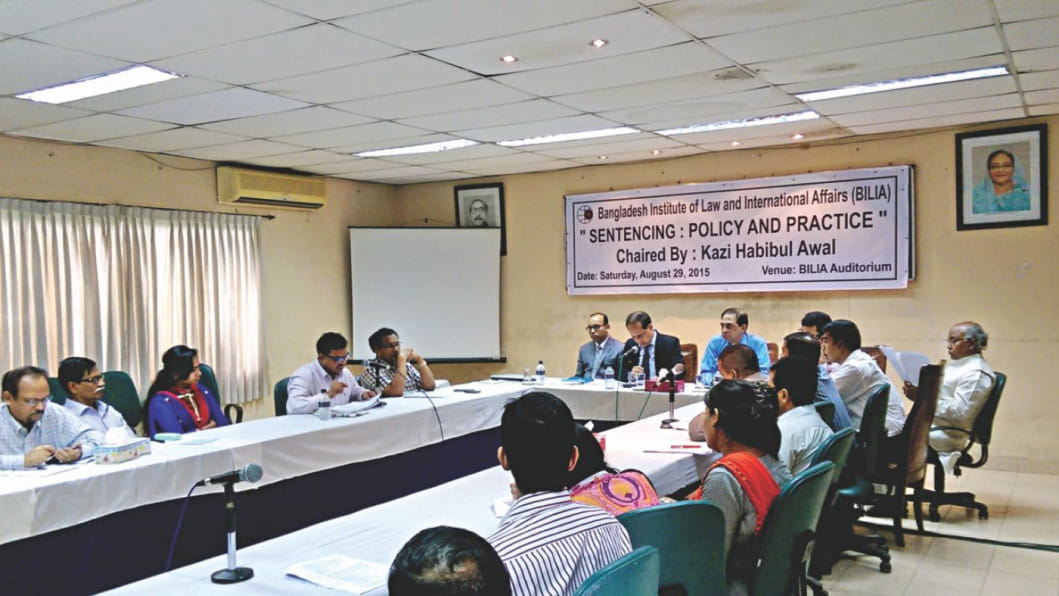Inconsistent sentencing

In Bangladesh, our Criminal Justice System does not allow us any separate sentencing hearing on the background of accused persons. This is because we do not have any sentencing guideline and in absence of this, our judges habitually award the sentences by exercising their individual sense of discretion. The sentencing practice in Bangladesh is regulated by some provisions of Penal Code 1860 and other special criminal laws enacted time to time. In general, the punishment should be regulated with the proportionality between sanction and the gravity of offence. In Alister Anthony Pareira v State of Maharashtra Indian Court held that: 'One of the prime objectives of the criminal law is imposition of an appropriate, adequate, just and proportionate sentence commensurate with the nature and gravity of [the] crime.' This objective is reasonably tough to achieve without any effective mechanism in our criminal justice system. The lack of any appropriate guidance can generate latent discrepancy in sentencing practice. In addition, extra-legal factors could be an issue on sentencing decision. As a result, an offender can be a victim of judge's discretion and at the same time another offender can be lucky for the amount of same offence.
On 29th August 2015, Bangladesh Institute of Law and International Affairs (BILIA) have conducted a seminar on 'Sentencing: Policy and Practice'. The seminar was chaired by Kazi Habibul Awal who is the Senior Secretary of the Ministry of Defence. Muhammad Mahbubur Rahman, who is an Associate Professor, Department of Law, University of Dhaka and H M Fazlul Bari, who is an Additional Chief Judicial Magistrate of Bangladesh were two distinguished speakers. Mr. Sheikh Hafizur Rahman, Associate Professor of Department of Law, University of Dhaka and Dr. Redwanul Haque who is an also Associate Professor from the same university were two distinguished discussants of the seminar. Including Dr. Shahdeen Malik, honorary Director of BILIA, MK Rahman, honorary treasurer of BILIA, Dr. Asif Nazrul, Professor, Department of Law, University of Dhaka, Dr. Borhan Uddin Khan, Professor & Chairman, Department of Law, University of Dhaka, researchers, lecturers and many more prominent senior advocates from Bangladesh Supreme Court have participated in the seminar.
Mr. Bari has discussed about various forms of sentencing options in Bangladesh. He more talked about the discretion of sentencing and how it does work with the concept of mitigation and aggravation. In his research, he has found the redundancy of the penal law of Bangladesh, sentencing statute, policy and commission, disparity in sentencing, harsh punishment, lack of victim protection, absence of plea bargaining, cripple criminal justice system and many more loopholes. The whole presentation of Mr. Bari was very resourceful and helpful for the audience. At the end of his presentation he also recommended some prospective solutions. After Mr. Bari's presentation, Dr. Mahbubur Rahman has exposed some interesting data from 838 sentencing judgments of the Supreme Court of Bangladesh as reported in major law reports of Bangladesh from 1972 to 2010. According to his view, the lack of sentencing guideline has created some inconsistencies in the judgments.

 For all latest news, follow The Daily Star's Google News channel.
For all latest news, follow The Daily Star's Google News channel. 



Comments